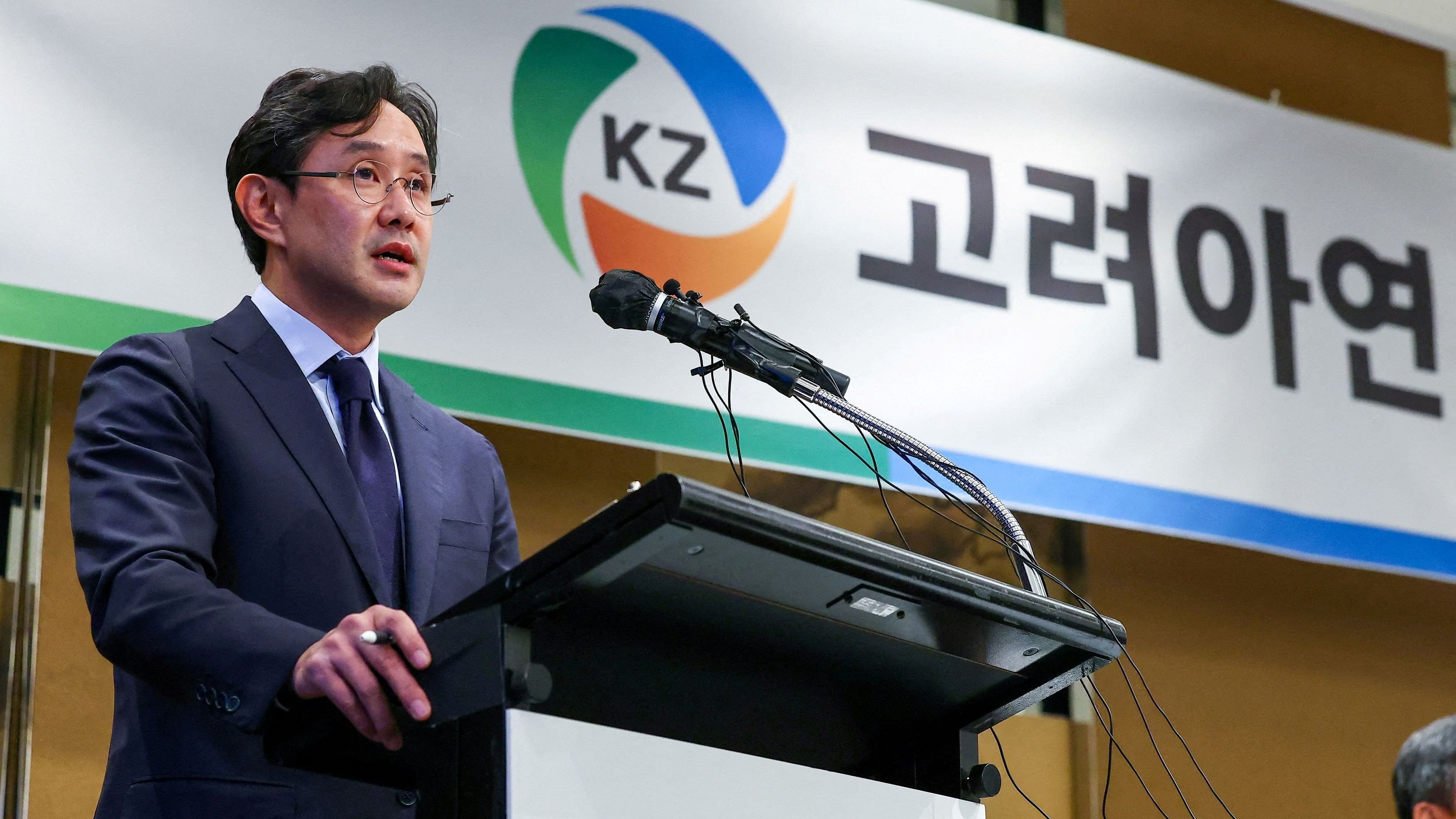
Yun B Choi, Chairman of Korea Zinc's board speaks during a press conference in Seoul recently.
By Heesu Lee
The battle for control of the world’s largest zinc smelter faces a critical deadline that could mark the beginning of the end of a multi-billion dollar succession feud.
Korea Zinc Co investors have until the end of Monday to decide whether to accept a twice-sweetened 830,000 won-per-share takeover offer from a consortium made up of its biggest shareholder, Young Poong Corp., and MBK Partners, one of North Asia’s biggest private equity firms. The two said last week there would be no further price increases.
On paper, that leaves an alternative offer ahead — a buyback launched by Chairman Choi Yun-Beom to fend off the unsolicited bid. Korea Zinc’s 890,000 won-a-piece gambit, supported by buyout firm Bain Capital, is just over 7% higher, valuing the company at 18.4 trillion won ($13.6 billion). Yet the stock has traded well short of that level, indicating continued skepticism among investors.
The endgame here will have ripple effects far beyond South Korea. The company controls about 12% of the refined zinc output outside of China, making it a key player in the efforts to diversify the supply of energy-transition metals. Zinc is used to galvanize steel and as a coating to prevent rust on solar panels and wind turbines, and the metal is also an alternative to lithium for batteries.
And while bitter public disputes among family-controlled conglomerates, or chaebols, are a recurring phenomenon in Korea and are the subject of popular TV dramas, few involve major private equity firms.
“MBK is going after these family-controlled companies that are exposed to the risk of management fight, which is keeping them on their toes,” said Park Ju-gun, head of corporate research firm Leaders Index in Seoul. “It’s a zero-sum game, but Choi is clearly more desperate because his defeat would mean the end of everything for him.”
The saga revolves around disagreements over the direction of the company and the role it can play in the global energy transition, which have left Korea Zinc’s Choi, the grandson of one of the founders, and Young Poong, controlled by the rival faction, at loggerheads.
A long-simmering dispute, the founding families’ fight spilled into the open last month with the MBK-backed bid. Timed right before the South Korean Thanksgiving holiday, it was intended to catch the Choi family by surprise. Retaliatory offers followed, pushing the stock to successive records.
South Korean financial watchdog intervened last week, calling the fight “overheated” and threatening to punish anyone engaging in unfair trade practices to influence the stock price.
MBK, founded by a US-educated former banker and Carlyle Group dealmaker, billionaire Michael ByungJu Kim, has said it wants to improve the corporate governance of Korea Zinc.
For over seven decades, the Chois and the Changs quietly built their holding company Young Poong into a massive conglomerate. But their differences grew when Choi, 49, became chairman in 2022, and announced plans to stake the company’s future on green transition.
Choi wants to diversify Korea Zinc away from its decades-old non-ferrous metals refining business, by investing in green economy, while the rival faction is keen for it to maintain strong dividends. To fulfill his goal, Choi struck a series of agreements with South Korean conglomerates, including Hyundai Motor Group, units of Hanwha Group, LG Chem Ltd, and commodities trader Trafigura Group, issuing new shares and raising funds.
The Chang family saw Choi’s attempt as a way to increase his influence by bringing in “friendly” investors and roped in MBK.
Korea Zinc shares rose as much as 2% during early trading on Monday. Shares settled at 794,000 won on Friday, about 11% below the buyback price.